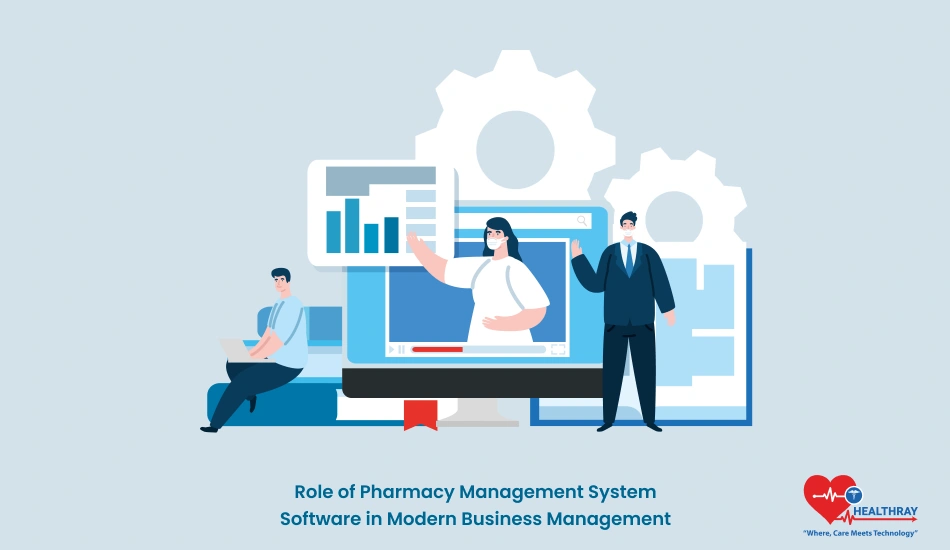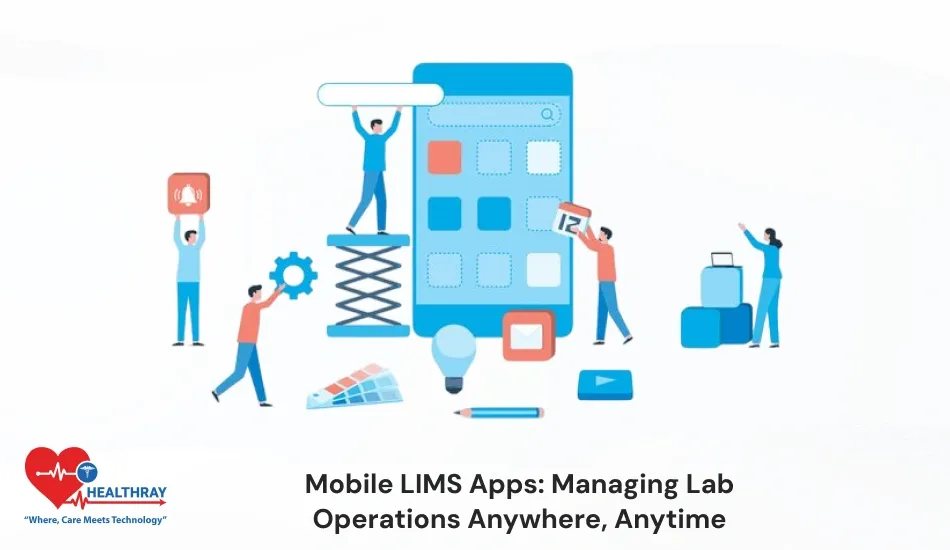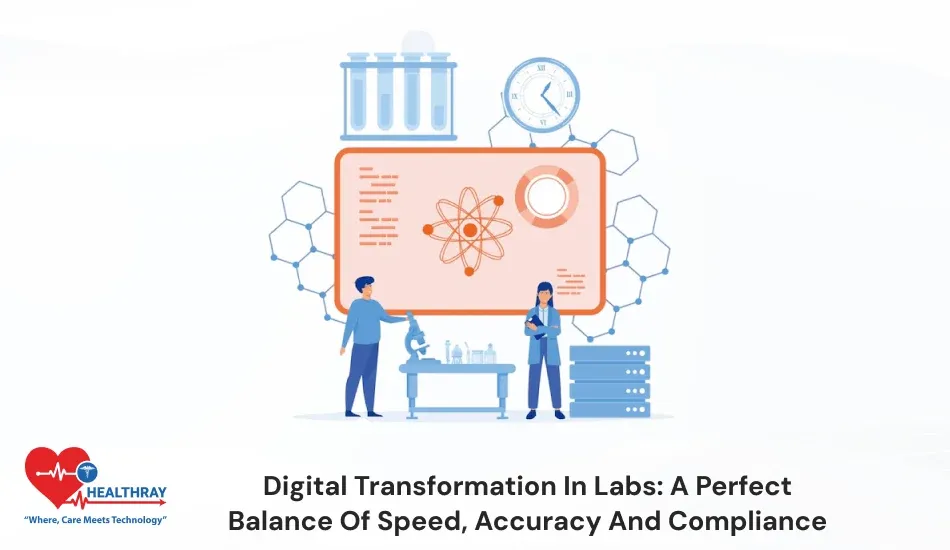Any pharmacy owner and manager, of course, must cope with the daily operation of the successful business, such as prescription management, inventory handling, customer satisfaction, and compliance with the strict regulations of healthcare. Pharmacy Management System application software automates all these tasks to free up staff time and decrease the risk of human error.
Pharmacies, however, are adapting towards digital themselves in order to improve the efficiency of their operational lives and the quality of their services. If you are on they, you can’t help but imagine how the Pharmacy Management System can make your life so much better. Don’t worry; the good news is, PMS software does much more than merely handle prescriptions. It can handle inventory control, customer relationship, and even care law compliance.
In this post, we’ll cover the essential benefits of PMS software, explain how it integrates with other healthcare systems, and show why it’s a smart investment for any modern pharmacy.
What is Pharmacy Management System (PMS) Software?
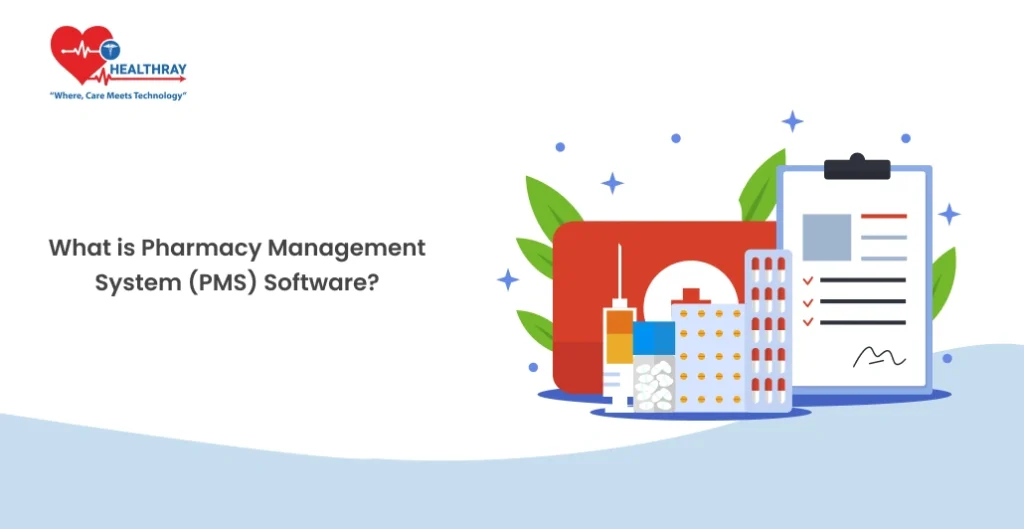
Pharmacy management system (PMS) software is a tailored IT solution which is developed to automate and streamline the major activities of a pharmacy day to day. The PMS software covers the gamut of prescription management to stock management, all in a single platform for efficiency. With this software pharmacy owners and managers are better able to have the most control over each and every aspect of the pharmacy with the most accuracy.
Key Functions of Pharmacy Management Software
Prescription Management
Any pharmacy’s work revolves around prescription processing. The PMS makes this process less complicated by electronically receiving prescriptions directly, checking the drugs for drug interactions and allergies, and ensuring proper and efficient prescription filling with less error and higher safety to the patient.
Inventory Control
Stocktaking is quite crucial and is a forerunner to the proper functioning of pharmacy. Thanks to the PMS, it is possible to track the stock online in real time, guaranteeing the availability of the right medication in the right moment, avoiding the excess of medications, and avoiding a stock of expired medications. Specific inventory management functionalities are, for example, the automatic reorder point, monitoring expiry dates, and low-stock warnings.
Billing
It controls the processes of payment and claims at an insurance facility, consuming massive amounts of your time. All of these operations are fully automated in your Hospital Pharmacy Management System, so it’s possible to deal with transactions on the spot and to single penny.
It saves precious minutes on paperwork and billing of patients or a company from an insurance firm, as speed is generated toward the financial angle of your drugstores.
Primary Benefits of a PMS Software
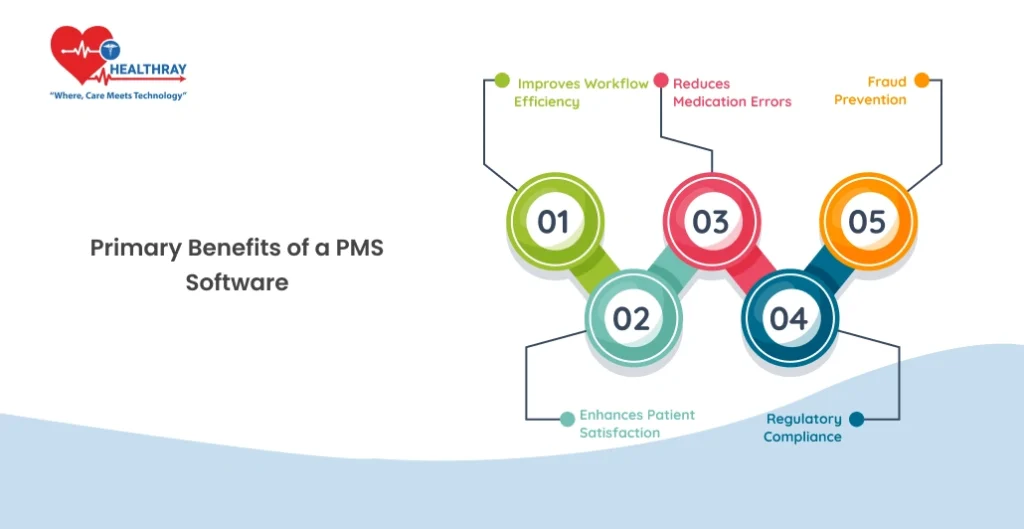
PMS software provides the greatest variety of potential benefits that can alter the way a pharmacy will be run. No matter if one is aiming to gain better workflow efficiency, fewer human mistakes or greater patient satisfaction, PMS systems present the necessary tools that any manager or pharmacy owner must consider. Some of the primary benefits that will make PMS a must for contemporary pharmacies are explained as follows.
Improves Workflow Efficiency
Pharmacies to operate are accompanied by a large amount of administrative duties that can slow down the process when executed manually. From dispensing medication to processing insurance claims, these activities take up quite a bit time. PMS software automates those tasks and enables your personnel to spend time on other activities, such as customer service. By automating routine tasks, you can expect faster service, fewer mistakes, and more efficient use of your team’s time.
Enhances Patient Satisfaction
Customer loyalty is the heart of a pharmacy enterprise, and with Pharmacy Software it is expected that patients’ relationship with the pharmacy will improve. Patients can control medication with auto-prescription refilling, text/email reminders or have access to history of prescribed medication. Convenience not only on the patient’s side but on health needs keeps a patient close. A satisfied patient turns out to be a good faithful customer.
Reduces Medication Errors
Medication errors can be very harmful to the patient and the pharmacy. PMS software helps minimize these risks by automating prescription check, likely drug interactions notification, and correct dosage. Eliminating the manualization of the equation can drastically reduce the risk of dispensing an incorrect drug or.
Regulatory Compliance
Pharmacies also have to follow other stringent rules related to healthcare such as controlled substance and patient confidentiality. PMS software will guarantee that compliance is upheld in the storing of confidential data securely and the development of required reports for auditing. This does not unnecessarily bother your staff so personnel will always be ready with a prepared pharmacy when the auditors and the inspectors arrive to do a regulatory inspection.
Fraud Prevention
Prescription abuse and drug abuse are, always behind the back of a pharmacy proprietor. PMS records every transaction and identifies aberrant behaviours like excessive requests of controlled substances. This additional security layer protects against fraud and protects the pharmacy from potential litigation.
Key features of a good Pharmacy Management System (PMS)

Not all PMS software is equal. Some are far more feature-rich than others, and others only offer basic capabilities. When you are planning to introduce a PMS system to your pharmacy, the following most crucial features will be worth considering which would have a direct impact to your pharmacy operations. The following are the most important features that you should anticipate to see in a great PMS software system.
Comprehensive Inventory Management
The management of the pharmacy’s inventory is not straightforward when hundreds of medications are included in the prescriptions. A good PMS will allow you to have real-time management of your inventories, enabling you to track the stock levels, expiration dates, and automatic reordering processes. This guarantees that the right drugs are available at the right time, stopping wasteful drug excess and drug shortages. This avoids the risk of being stuck with outdated drugs, and which could put patients at risk and damage your reputation.
Automated Prescription Processing
Prescription management lies at the heart of every pharmacy. In order to be accurate and efficient, this process should be carefully considered. An ideal prescription management system (PMS) system automates all prescription processes, from electronic prescription to confirmation of drug/drug interactions. That does not require manual keypunching, which can be time-consuming and error-prone. Moreover, it can also verify patient chart with allergies or previous adverse reaction to enable safe and correct dispensing of drugs.
Invoicing and Payment Integration
Billing, insurance submissions and payments are the biggest time commitments in the practice. A good PMS system will automatically manage this process, allowing for timely claim submissions and efficient payment processing. It should also be able to integrate with a variety of payment methods, including credit cards, mobile payments, and insurance platforms. This speeds up the checkout process and reduces the chance of errors in billing.
Patient Management and Involvement
The best PMS systems make it beyond operational tasks; they actually help you work closer and more intimately with your patients. A quite effective system provides patient portal functionalities such as viewing medication history, online prescription, and refill prescription with notification. All of these result in making life easier for your patient and make their stay in your facility better, resulting in loyalty and satisfaction.
Regulatory Compliance Features
Compliance is one of the most challenging issues for pharmacies to transition to the new increasingly strict rules over respect for patient privacy, control of substances, and medical records. An effective pharmacy inventory software system would keep you compliant by supporting safe storage of your patient information, generating the reports which you are likely to require for audits, and safeguarding all your information. Therefore, by reserving your pharmacy from legal problems while maintain a safe and ethical care to patients, you can protect your pharmacy from potential future problems.
Data Analytics and Reporting
Arguably, the strongest function of an effective PMS system lies in its capability to offer information through data. Such a powerful PMS will provide reporting tools to monitor the prescriptions trend, the sales, the inventory turnover, and the behaviors of patients. These reports can aid you in making informed business decisions, such as, revisiting your stock levels according to demand or pinpointing high prescription times to optimally staff.
Integration with the Healthcare System
Your PMS will correlate very well with the rest of the systems (e.g., EHRs, telemedicine platforms, and hospital platforms) for more effective coordination between the health care providers and the pharmacies to deliver excellent patient care. For instance, an EHR-based PMS delivers pharmacists with valuable information about their patients’ histories, to administer correct medications and potentially even deliver more customized services.
Conclusion
Pharmacy Management System (PMS) software is a very critical tool in the management of a modern pharmacy, allowing owners and managers to run their pharmacies with efficiency, better customer satisfaction, and scalability. Hospital Management System software reduces the chances of error in prescription processing, inventory management, and billing, thereby making sure that regulatory compliance is achieved while freeing up more time for patient-focused services. A scalable PMS solution is the need of the hour in the face of growing demands for more services and larger pharmacies.
